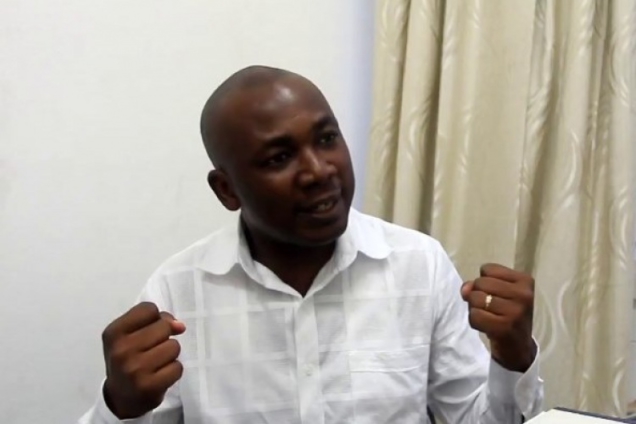Economist and Economics Lecturer at the University of Ghana, Prof. Godfred Bokpin has predicted that this is not the last time the country will be seeking an International Monetary Fund (IMF) bailout.
He said this is due to the failure of successive governments to adopt prudent measures to stabilize the economy.
“This is not the last time we will be going to the IMF. We have failed as a country to successfully do the needful- to say these are the necessary fiscal reforms we need to pride ourselves as a nation that won independence in 1957,” he said on the Super Morning Show, on July 6, 2022.
Ghana has sought the assistance of the Bretton Woods institution 16 times already.
Contributing to discussions on the government’s decision to seek an IMF bailout, Prof. Bokpin recalled that in 2019 when the country was exiting the 16th IMF programme, government promised to roll out some reforms to restore the ailing economy.
"This won't be the last time we will go to the IMF, we have failed as a country successfully to the needful when we were in charge"
— Joy 99.7 FM (@Joy997FM) July 6, 2022
- Prof. Godfred Bokpin on Ghana and the IMF. #JoySMS pic.twitter.com/mltwGeXKva
However, failure to implement those measures has resulted in the current derailed economy.
“When we were exiting the 16th programme in 2019, government promised the IMF they were going to embark upon certain reforms – fiscal reforms, productivity-enhancing reforms and they satisfied the IMF that these were going to be done. The IMF agreed with them in principle and we exited successfully."
He noted that although government pledged to implement an Exemption Bill as part of the measures, this did not happen.
“The other thing they said was a Fiscal Responsibility Act. Inbuilt in that they talked about a Fiscal Council but then the Exemption Bill went to Parliament and government wasn’t really committed to passing the Exemption Bill. They only took it to Parliament to fulfil righteousness. The Bill was never passed,” Prof Bokpin stressed.
He also mentioned that although government promised to do proper supervision of the State-Owned Enterprises (SOEs) to reduce losses, this was not fulfilled.
“If you put all these together, you realise that how we are running our democracy is very expensive – that when it comes to the cost of running the government architecture, it leaves nothing for development activity.
“And if we continue like this, you’ll have to be unique to expect a different outcome and I’m sorry if we don’t take advantage of the next programme to make the necessary reforms, we will be there (IMF) again,” he added.
Latest Stories
-
Election 2024: ‘Right to free and fair elections non-negotiable’ – Akufo-Addo
5 mins -
Kurt Okraku took out my passport from the U23 squad that travelled to Japan – Najeeb Yakubu alleges
15 mins -
Where hope fails: Ghana’s decaying home for the destitute
25 mins -
NDC Mining Committee for 2024 campaign refutes allegations of recruiting thugs for elections
35 mins -
Traction Control: A lifesaver with an off switch? Here’s why it exists
39 mins -
I don’t need anyman to woo me with money – Miss Malaika 2024 winner refutes pimping claims
46 mins -
”Kurt Okraku sabotaged my national team career because I refused to sign with Dreams FC” – Najeeb Yakubu
46 mins -
Businesses urged to leverage Generative AI for enhanced customer engagement
50 mins -
MultiChoice Ghana partners with Ghana Hotels Association to elevate guest entertainment
59 mins -
Bawumia’s music streaming app or Mahama’s pay-per-view TV channel?
1 hour -
Karpowership Ghana empowers 40 Takoradi Technical University students with scholarship
1 hour -
We expect significant reduction in prices of petroleum products in coming weeks – CEO AOMC
1 hour -
Betway Africa offers once-in-a-lifetime ‘Play-on-the-Pitch’ experience at Emirates Stadium
1 hour -
I coined the term ‘hype man’ in Ghana – Merqury Quaye
2 hours -
Vasseur questions ‘strange momentum’ of Formula One race director change
2 hours

